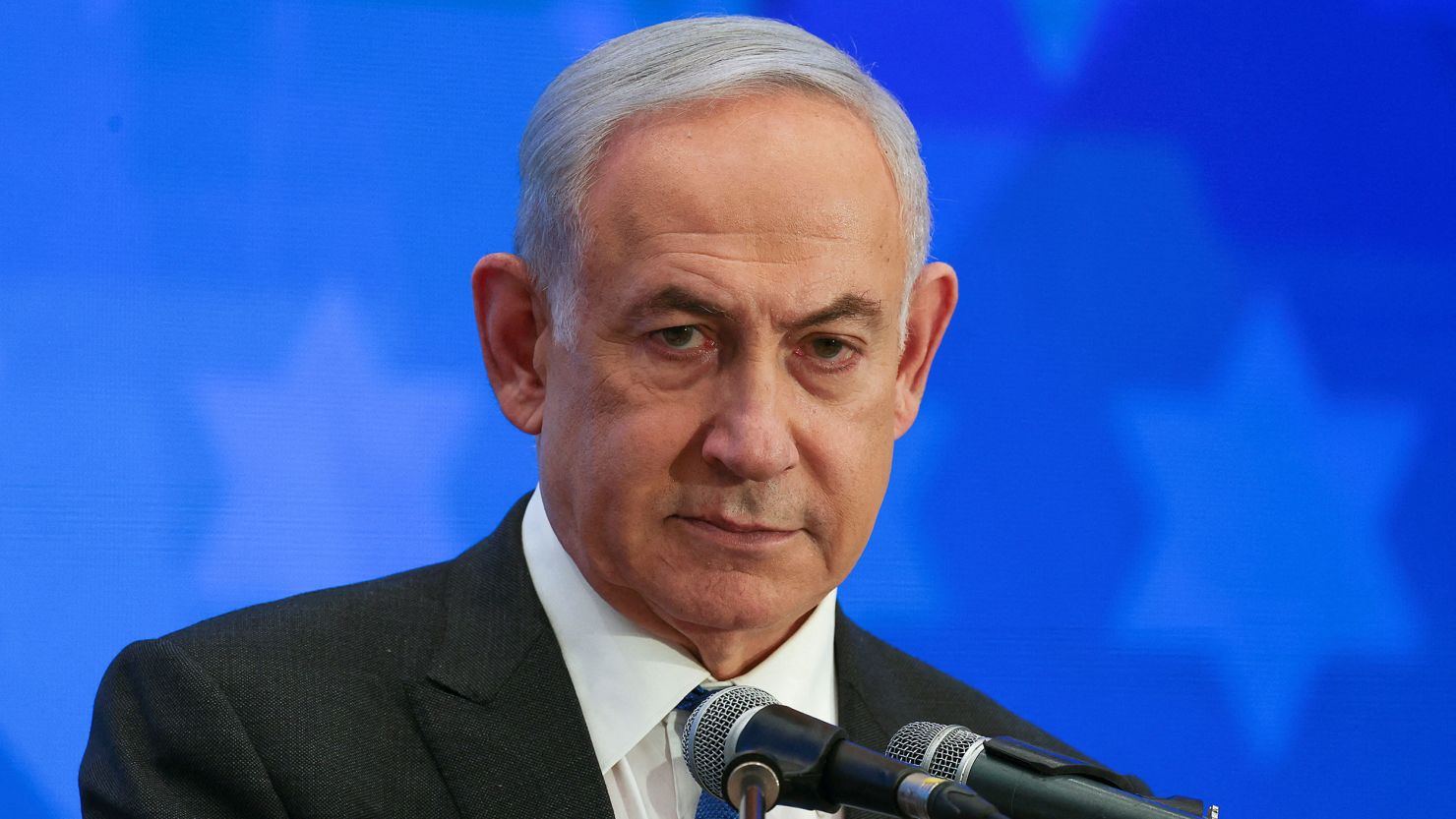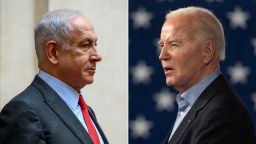Israeli Prime Minister Benjamin Netanyahu’s week began with the chants of thousands of protesters demanding a hostage deal and early elections outside the Knesset and his official residence. It ended with a scolding from?US?President Joe Biden over the Israeli military’s killing of seven humanitarian aid workers and the rapidly spiraling humanitarian crisis in Gaza.
In between, the Israeli prime minister’s chief political rival and war cabinet member raised his voice in support of early elections for the first time, ratcheting up the political pressure.
And yet, Netanyahu’s grip on power doesn’t appear to be in any imminent danger of slipping away.
Even as the walls appear to be closing in and a majority of Israelis continue to disapprove of Netanyahu’s performance, the mounting international and domestic political pressure has yet to fundamentally change the dynamics of his governing coalition – whose collapse would trigger new elections – nor his willingness to remain in office.
“I don’t think that there’s any leader in the world that faces so many fronts – has to cope with so many fronts – internal and external,” said Aviv Bushinsky, a former?adviser?to Netanyahu. “(But in Israel), we don’t talk about approval rating, we talk about the coalition.”
Netanyahu has repeatedly faced seemingly-certain political death during his decades-long career in?politics, but has managed to survive and become Israel’s longest-serving prime minister in part by tending to the interests of allies in his governing coalition who will keep him in power.
“I had the privilege to lose the elections with Netanyahu in ’99. And for two years, we were working on his rehabilitation – the new Bibi at the time,” Bushinsky said. “The most fundamental thing that Netanyahu learned, it wasn’t a behavioral mistake. It was a political mistake. Never betray your natural allies, the other parties in the right wing.”
That concept has never been truer for Netanyahu than in this current governing coalition, the most right-wing in Israel’s history. And even as Netanyahu faces a slew of political headwinds, none of the members of that governing coalition, or of his own party, have indicated any serious intent of leaving the government and triggering its collapse.
A bruhaha over whether ultra-Orthodox Jews should be conscripted into the Israeli military has recently presented a new threat to his coalition, given the diverging interests of key members of his Likud party and ultra-Orthodox parties in his coalition. But Israeli political analysts now estimate it will likely be months before the issue comes to a head and presents any real threat to his government.
Netanyahu is facing mounting public displays of discontent, from the families of Israeli hostages as well as the growing number of people taking to the streets of Tel Aviv and Jerusalem to demand new elections. But while their numbers are growing, the protests have yet to come close to matching the scale of the protests opposing his judicial reform plans before the war.
Former Defense Minister Benny Gantz, Netanyahu’s top political foe who joined the wartime unity government days into the war, is beginning to do his part to turn up the heat on Netanyahu. For the first time this week, he called for early elections as soon as September, ahead of the 1-year anniversary of the war, framing such?a vote?as essential to preserving?the wartime unity that his presence in the emergency government has helped deliver.
“I believe that the Israeli society needs to renew its contract with its leadership,” Gantz said this week. “And I think the only way to do it and still maintain?the national effort in fighting Hamas and terrorist groups and other security challenges is by having an agreed election date, that we have to discuss when and if. And I hope that my political partners and friends, and maybe some rivals as well, will agree to it because I think it serves all the country and all its sectors at the same time.”
Netanyahu has yet to publicly address Gantz’s demand and no members of Netanyahu’s coalition have indicated a desire to help turn Gantz’s call into reality by triggering new elections.
Gantz stands the most to gain with new elections, with Israeli polls indicating his party would win the most seats in the Knesset – giving him a mandate to form a new government.
His departure from the war cabinet would not trigger new elections because he is not a member of the 64-member governing coalition that gives Netanayahu a majority in the 120-seat Knesset. But a Gantz departure from the government could shatter the image of wartime unity that has already begun to fray.
“Breaking the image of unity might be something very harmful for the for the government, because you will see more demonstrations in?the streets and you cannot be indifferent to the demonstrations, even if you are 100 years in power,” Bushinsky said.
As for the growing criticism of Netanyahu from the Biden White House and its allies?
On the one hand, it is undermining a key attribute for any Israeli prime minister: a need to maintain a strong relationship with Israel’s most important ally, especially in wartime. But on the other, the criticism has given Netanyahu an opportunity to showcase his characteristic defiance, positioning himself as a defender of a war effort that the overwhelming majority of Israelis continue to support.
“The criticism and the pressure that is being implemented or imposed on Israel? Now, it suits Netanyahu. Because this is another way that Netanyahu can show his constituency that he’s a very strong leader and no one can manipulate him,” Bushinsky said. “The more you squeeze Netanyahu, the more firm Netanyahu… shows that he is strong.”



